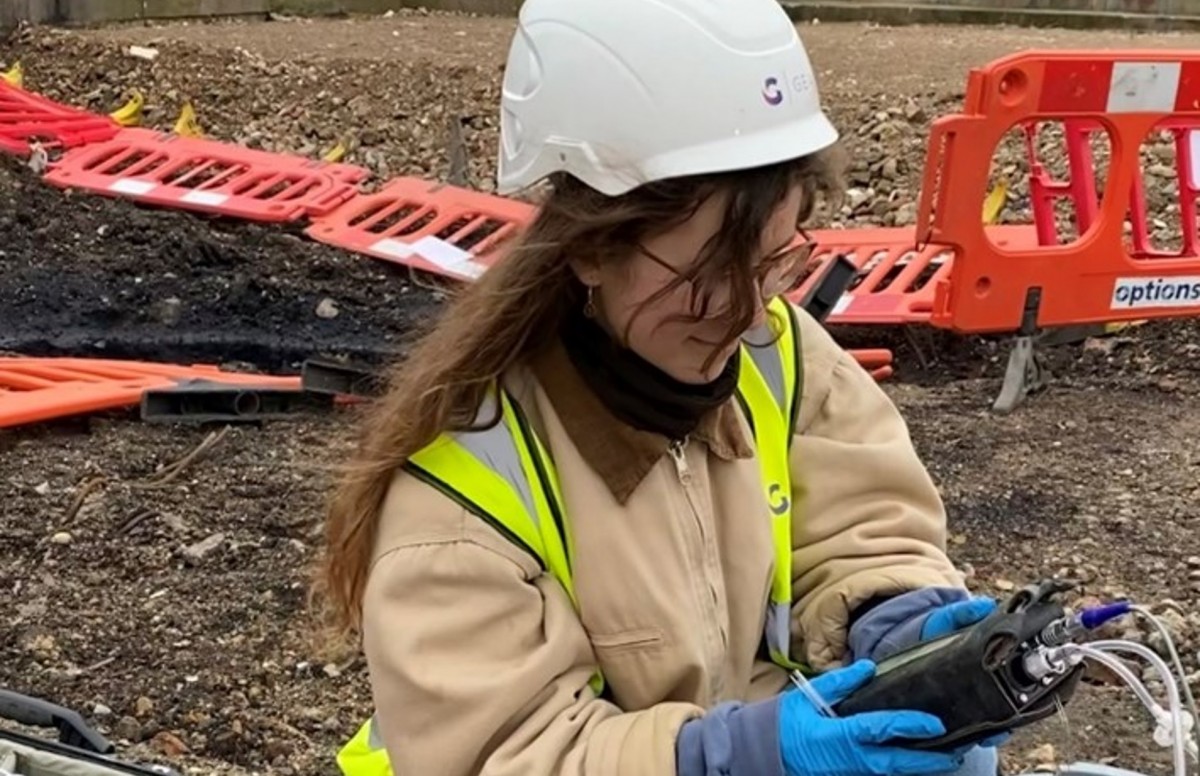Not known Factual Statements About Geotheta
Some Of Geotheta
Table of ContentsIndicators on Geotheta You Need To KnowGeotheta for DummiesHow Geotheta can Save You Time, Stress, and Money.Everything about GeothetaHow Geotheta can Save You Time, Stress, and Money.

They carry out website examinations, gather samples, execute laboratory examinations, and evaluate information to assess the suitability of the ground for building and construction jobs - Geo Tech Engineering. Based on their searchings for, geotechnical designers offer recommendations for foundation style, slope stability, keeping structures, and reduction of geotechnical threats. They collaborate with other experts, such as designers, architectural designers, and building and construction groups, to make sure that geotechnical factors to consider are integrated right into the overall project layout and execution
By evaluating the actions and residential properties of dirt and rock, they can recognize possible geotechnical hazards such as landslides, dirt settlement, or incline instability. Their experience aids stop failings or mishaps that might jeopardize lives and property. Right here are some comprehensive responsibilities and obligations of a geotechnical designer: Website Investigation: Geotechnical engineers conduct website examinations to gather data on subsurface conditions.
They translate the information to recognize the properties and habits of the soil and rock, including their toughness, leaks in the structure, compaction features, and groundwater problems. Geotechnical Evaluation and Layout: Geotechnical engineers assess the information collected during website examinations to evaluate the security and viability of the website for building and construction projects. They execute geotechnical computations and modeling to evaluate factors such as bearing capability, settlement, slope stability, lateral earth pressures, and groundwater flow.
Little Known Questions About Geotheta.
Foundation Design: Geotechnical designers play an essential duty in creating structures that can safely sustain the desired framework. They evaluate the dirt conditions and lots needs to determine the suitable structure type, such as shallow foundations (e.g., grounds), deep structures (e.g (https://gravatar.com/exactlypainterdeb7b76e1a)., stacks), or specialized methods like dirt renovation. They think about variables such as settlement limits, birthing capacity, and soil-structure interaction to create ideal foundation styles
They review construction plans, display site activities, and carry out field examinations to verify that the layout recommendations are followed. If unanticipated geotechnical concerns emerge, they analyze the scenario and give suggestions for removal or changes to the layout. Danger Assessment and Reduction: Geotechnical engineers analyze geotechnical risks and threats connected with the job site, such as landslides, liquefaction, or soil erosion.

Collaboration and Communication: Geotechnical designers function read closely with other professionals associated with a job, such as engineers, architectural designers, and building groups. Reliable communication and collaboration are important to integrate geotechnical considerations into the total job design and building and construction procedure. Geotechnical designers give technical know-how, answer queries, and ensure that geotechnical demands are met.
Geotheta Can Be Fun For Anyone
Right here are some kinds of geotechnical designers: Foundation Designer: Structure engineers concentrate on designing and analyzing structures for structures. They examine the dirt problems, tons needs, and site qualities to establish the most suitable foundation type and design, such as superficial structures, deep structures, or specialized methods like heap structures.
They assess the elements affecting slope stability, such as dirt homes, groundwater problems, and incline geometry, and create approaches to avoid slope failings and minimize risks. Quake Engineer: Earthquake designers focus on analyzing and developing structures to endure seismic pressures. They assess the seismic danger of a website, review dirt liquefaction possibility, and establish seismic design requirements to guarantee the safety and security and strength of structures throughout earthquakes.
They carry out area screening, accumulate samples, and analyze the collected information to define the dirt buildings, geologic formations, and groundwater problems at a website. Geotechnical Instrumentation Engineer: Geotechnical instrumentation engineers concentrate on tracking and determining the actions of dirt, rock, and frameworks. They mount and preserve instrumentation systems that monitor factors such as dirt negotiation, groundwater degrees, slope movements, and structural displacements to assess performance and supply early warnings of possible issues.
Getting My Geotheta To Work
They perform examinations such as triaxial examinations, debt consolidation tests, direct shear examinations, and leaks in the structure tests to gather data for geotechnical analysis and layout. Geosynthetics Designer: Geosynthetics designers focus on the style and application of geosynthetic materials, such as geotextiles, geogrids, and geomembranes. They utilize these materials to boost dirt security, strengthen inclines, provide water drainage solutions, and control disintegration.
They often tend to be investigatory individuals, which suggests they're intellectual, introspective, and curious. They are curious, systematic, rational, analytical, and sensible. Some of them are likewise social, indicating they're kind, charitable, participating, client, caring, useful, empathetic, skillful, and friendly - Engineer of Record.
In the workplace setting, geotechnical engineers utilize specialized software application devices to do calculations, develop layouts, and analyze data. They prepare records, review project specifications, communicate with clients and staff member, and coordinate task activities. The office setting offers a conducive atmosphere for study, analysis, and partnership with various other professionals associated with the job.
About Geotheta
They often see job sites to carry out site examinations, examine geotechnical conditions, and collect information for analysis. These brows through include traveling to different places, in some cases in remote or tough terrains. Geotechnical designers may execute dirt tasting, conduct tests, and display building and construction activities to make certain that the geotechnical elements of the project are being implemented properly.
Geotechnical designers also work in specialized geotechnical laboratories. In these facilities, they conduct experiments, carry out tests on dirt and rock samples, and assess the design residential properties of the materials. Geotechnical lab designers work thoroughly in these settings, managing screening equipment, running instruments, and taping data. They work together with various other research laboratory personnel to guarantee accurate and reliable screening results.